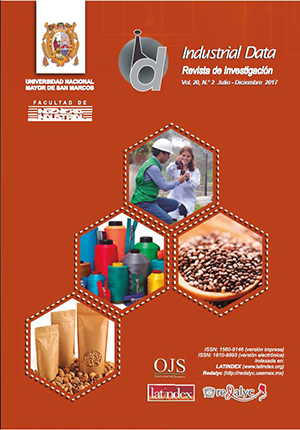BIOCOMERCIO, FAIR TRADE AND ASSOCIATIVITY MODEL FOR PERUVIAN SUPERFOODS
DOI:
https://doi.org/10.15381/idata.v20i2.13948Keywords:
Superfoods, maca, associativity, biological trade, fair tradeAbstract
Products known as "Superfoods" are currently in high demand in international markets. Peru has a great variety, among them, maca, quinoa, kiwicha and others, which have attracted interest in many markets because they are natural, organic, functional and nutraceutical products. Peru endorses them in order to promote the biocommerce of the "Superfoods Peru", combined with activities of organic certification, fair trade and associativity. They are fundamental parts for the development of companies formed by communities, that obtain economic benefits with improved quality of life for families and communities. PROMACA works with this model where it implements these organic agricultural practices, promotes specialization, fair trade, innovation and associativity among members, thus generating a greater benefit for those involved in the chain, for customers and the ecosystem.Downloads
Downloads
Published
Issue
Section
License
Copyright (c) 2017 Eduardo Buse Thorne, Mario Chong Chong, Luz Vílchez Túpac

This work is licensed under a Creative Commons Attribution-NonCommercial-ShareAlike 4.0 International License.
AUTHORS RETAIN THEIR RIGHTS:
a. Authors retain their trade mark rights and patent, and also on any process or procedure described in the article.
b. Authors retain their right to share, copy, distribute, perform and publicly communicate their article (eg, to place their article in an institutional repository or publish it in a book), with an acknowledgment of its initial publication in the INDUSTRIAL DATA.
c. Authors retain theirs right to make a subsequent publication of their work, to use the article or any part thereof (eg a compilation of his papers, lecture notes, thesis, or a book), always indicating the source of publication (the originator of the work, journal, volume, number and date).



















